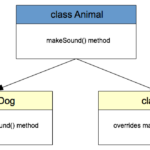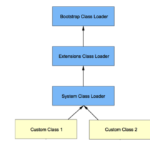Be prepared for your next job interview with the ultimate “Job Interview Survivor Guide”
Did you plan to talk about education, work experience, job responsibilities and career growth during the interview? Instead, you are offered to draw a little man, tell an anecdote, solve a logical problem, and at the end of the conversation interviewers are interested in how many fishing rods can fit into the truck.
Your confusion is quite understandable. The fact is that you are subjected to a special psychological test.
Questions with a dirty trick can be divided into two groups. The first one is stressful. This category includes information about your previous professional successes, as well as the composition of the family, the place of work of parents, etc. Such questions help to catch the interlocutor on inaccuracies. In principle, the employer can learn the answers from the questionnaire, but it is important for him how you react to them. In this case, it is necessary to answer as honestly as possible, without unnecessary emotions.
The second group consists of questions that test your erudition and sense of humor, mastery of speech and logic, speed of reaction and endurance. Tricky questions, unlike stressful ones, are not offensive and have a practical meaning.
Topics of this group are difficult to define, because the imagination of recruiters is unlimited. The unexpected question and the abrupt transition from the official part of the interview to the entertaining confuse. In a state of shock, a person involuntarily provides the HR with more important information than he intended initially.
Let’s find out how to answer such questions!
1. Tell us about yourself
This most common and simple question often puts candidates in a dead end. With its help, you can learn about the life priorities of the candidate. First of all, your employer is interested in your education and work experience. The story of personal life is desirable to be minimized. Therefore, try to prepare an autobiographical mini-story in advance.
2. What do you do in your spare time, do you have a hobby?
This question is the logical continuation of the previous one. It helps the recruiter to check the compliance of the candidate’s psychological portrait with the requirements of the post. For example, a company needs an active person with leadership qualities, with readiness for business trips. The candidate at the interview says that he is fond of floriculture, loves home comfort and does not tolerate the road. Such a candidate is unlikely to be accepted into the state. Employers like active, versatile people.
When answering questions about hobbies, it is better to talk about hobbies that require the same qualities as the proposed position. Analysts can boast of achievements in solving crossword puzzles, executives – of being a captain of a sports club, designers – any creative activity.
Also, the question of a hobby allows you to assess the intellectual level of the candidate, his health and athletic form (if the hobby is sporting). Remember, if you have chosen to read books as a hobby, it will be better if you mention not only the latest bestsellers, but also professional publications.
3. Why did you quit your previous job?
The employer wants to know what was wrong at your previous position and what you expect from the new one. The main rule: never speak ill of a former boss or colleagues. The new boss does not know how everything was in fact, but he can find you a conflict and problem employee. You can refer to routine, an uncomfortable schedule, change of leadership. However, the best answers will be your statements that you want to be in the state of a stable company, have the opportunity of career growth, work on interesting and useful projects, etc.
4. List your shortcomings
The answer will help the employer to draw conclusions about the maturity of your personality. Only mature person is aware of his strengths and weaknesses, can speak about them calmly and with self-irony. Therefore, do not be witty, stating that you are very lazy. It is better to laugh off: “Sometimes I get so carried away that I stop feeling the passage of time.” The disadvantages that you will attribute to yourself, should be considered positive qualities for your specialty: pedantry and meticulousness are necessary for the accountant, excessive sociability – to the advertising agent. You can answer neutrally: “I have shortcomings, but they do not affect the work.” Long, frank and detailed speeches should be avoided.
A variety of this question is: “What can you say about your life’s failures?” Recruiter is interested not in the very fact of failure, but in your attitude to ups and falls, the ability to pull yourself together after a failure.
5. Tell us about your achievements
The recruiter checks your self-esteem. You can tell about a successfully implemented project, upgrading your skills, getting a corporate award. The main thing is not to overdo it. You can not fall into the other extreme and underestimate your own knowledge and abilities. Interviewing is not a time for excessive modesty. So, if answering the question of how well you know German, you decide to show modesty, then, most likely, the HR will make a note “does not speak the language” and will give a job to a more self-confident competitor. Therefore, answer convincingly and confidently.
6. How long do you plan to work for us?
This question helps the recruiter learn your goals and determine the degree of sincerity. Of course, you can get away from the answer by saying that first you have to work in the company and understand whether the team likes interesting tasks to be solved. “If everything is great, our cooperation will be long and mutually beneficial” – this is a perfect response.
7. What is the desired salary level?
The employer is wondering if the company can “buy” you. When answering boldly, call the amount that is 10-15% higher than the one that you was paid at the previous place of work. The minimum can not be lower than the old salary (or it has to be compensated for something). If you are taking the first job, then look at similar proposals on specialized websites and in the media.
8. How do you withhold workloads?
This means that the company is likely to practice overtime. You can specify whether it is possible, and how the overtime is being paid. For the same purpose, questions are asked about the marital status, availability and age of children. From the answers you can draw conclusions about whether the employee will work without sick leave and time off, whether he will be a stable and dedicated employee.
9. What would you not like to encounter at work?
“What is the most upsetting in your work?” These questions check the candidate’s personal qualities. Answer, proceeding from the generally recognized values: lying, unprofessionalism, scandals, gossip.
10. Why are you interested in this position?
The employer would like to know, what exactly attracted you, in order to find out your priorities, and what impressed you the most. Be sure to mention the fact, that you would like to work in a big and prosperous company and you are interested in the position, because you have enough knowledge.
Preparation is necessary!
At an interview, a human resources officer does not always seek reliable information about a potential employee. The main goal of the recruiter is to form a psychological portrait of the candidate, to assess his moral qualities, ambition, career claims. The answer must be given necessarily, no matter how stupid or ridiculous the question might seem.
Of course, all questions can not be foreseen, because every interview is unique. However, you still need to be prepared. You can “wander” around the forums about employment, find practical advice. If you’re lucky, you’ll stumble on the stories of other job seekers who have been interviewed by the same company you are going to attend.
It is also important to properly behave in an interview. Be calm, answer confidently, pronounce the words clearly, ask questions. There is nothing to be afraid of, you are the best candidate, and the interview is just a required meeting. Do not be shy, but do not be too frank neither, you need to maintain a benevolent mood in any situation. Perhaps your interlocutor will be your future colleague. Nevertheless, even if not – be sure, you will find a job. Good luck on the interview!
About the author: Melisa Marzett is a professional writer, who can write on any topic. You can read her amazing posts at star-writers.com







